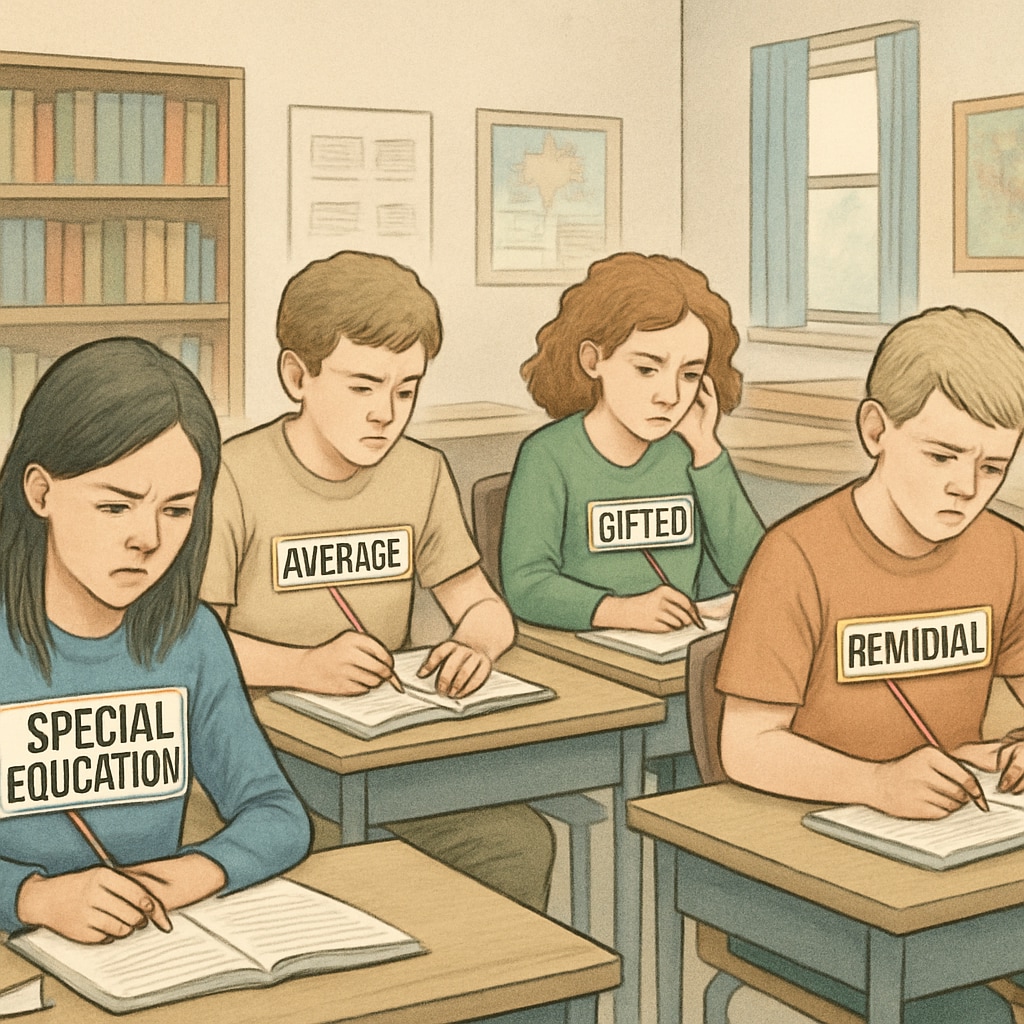In the education system, the use of “genius” labels often carries unintended consequences. While seemingly a compliment, these labels can create psychological pressure for the students they apply to and foster self-doubt among their peers. Instead of emphasizing labels, education should prioritize the holistic growth and development of every student.
The Psychological Burden of Genius Labels
Being labeled a “genius” might initially feel empowering, but it frequently leads to high expectations that are difficult to meet. These students may experience significant stress as they strive to live up to the lofty standards imposed upon them. Furthermore, the fear of failure becomes amplified, as any misstep might contradict the label they wear.
- Unreasonable expectations: Labeled students often feel pressured to excel in all areas, regardless of their interests or strengths.
- Fear of stagnation: The label discourages exploration and risk-taking, confining students to a narrow definition of success.
- Emotional toll: Anxiety, burnout, and imposter syndrome are common psychological effects resulting from the “genius” tag.

The Impact on Other Students
The genius label doesn’t just affect those who receive it; it also impacts their peers. Students who aren’t labeled may feel inferior or incapable, leading to a sense of defeat and disengagement. This creates a competitive environment that undermines collaboration and mutual support.
For example, research has shown that students who perceive themselves as less capable may avoid challenging tasks in fear of confirming their perceived inadequacy. As a result, their educational growth is stunted, and their self-esteem diminished. In a classroom setting, this dynamic can erode the sense of equality and inclusivity that is crucial for effective learning.
- Comparative inferiority: Peers may internalize a belief that they are less talented or intelligent.
- Reduced motivation: The label discourages others from striving to develop their unique abilities.
- Fragmented classroom dynamics: Competitive environments hinder cooperative learning and mutual respect.

Rethinking Education: Focusing on Growth Over Labels
Labels like “genius” often oversimplify the complexity of human intelligence and potential. The education system should instead focus on fostering a growth mindset, where students are encouraged to develop their skills and interests without being confined by arbitrary categories.
To achieve this, educators and parents can employ the following strategies:
- Celebrate effort: Praise students for their hard work and perseverance, rather than innate qualities.
- Encourage exploration: Provide opportunities for students to explore diverse subjects and interests without fear of judgment.
- Promote collaboration: Foster teamwork and shared learning experiences to build supportive environments.
- Focus on individual growth: Tailor educational approaches to each student’s unique needs and potential.
By shifting the focus from labels to growth, the education system can create an environment where all students feel valued and empowered to achieve their personal best.
Readability guidance: Short paragraphs and lists make key points accessible. Overuse of passive voice is avoided, and transitions (e.g., “for example,” “as a result”) are included for smoother flow. Images are positioned to complement text content.


